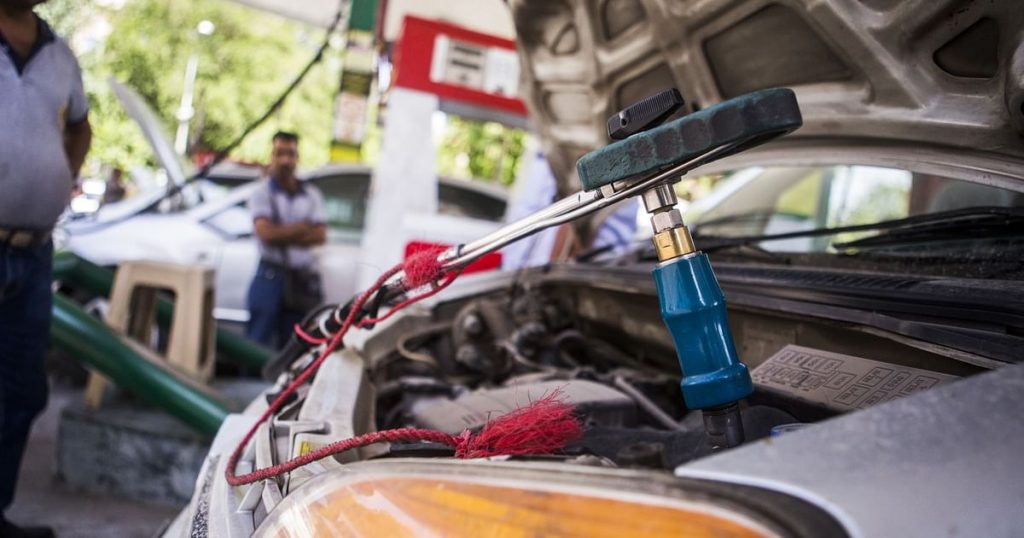Before electric vehicles become common in India, the nation’s largest carmaker is at the forefront of driving cleaner mobility.
Maruti Suzuki India Ltd., which accounts for every second passenger vehicle sold in India, has seen sales of compressed natural gas-driven cars more than double to 1,38,000 units as of February. The company estimates to sell nearly 1.6 lakh gas-powered units in the year through March. Or about 12% of its yearly volumes.
“It’s helping us push overall sales, especially when everyone expected us to lose market share after the exit from diesel last year,” Shashank Srivastava, executive director of sales and marketing at Maruti Suzuki, told BloombergQuint over the phone. The maker of the Swift hatchback, he said, has almost made up for the loss of diesel share, thanks to increased penetration of CNG vehicles.
Still, such units account for 5% of the total vehicles sold in the country, according to a Crisil report. Actual share will be higher as bulk of the CNG kits are installed in the aftermarket. But lack of infrastructure to boost adoption of electric vehicles, record high prices of petrol and diesel and demand for personal mobility during the pandemic is driving sales of natural gas-powered cars.
That’s why Maruti Suzuki’s bet has started to pay off, said Suraj Ghosh, who leads the South Asia division of powertrain and compliance forecasts at IHS Markit. They were the only one bullish on CNG, he said, and it’s driving industry volumes, with India’s No. 1 carmaker “miles ahead of the competition”.
Until 2019, Maruti Suzuki was selling an average 8,000 CNG units a month. That, according to Srivastava, has now more than doubled to 18,000-20,000. Hyundai Motors India Pvt. is placed second with 3,000 such vehicles a month. Tata Motors Ltd. plans to launch company-fitted CNG vehicles by next year.
